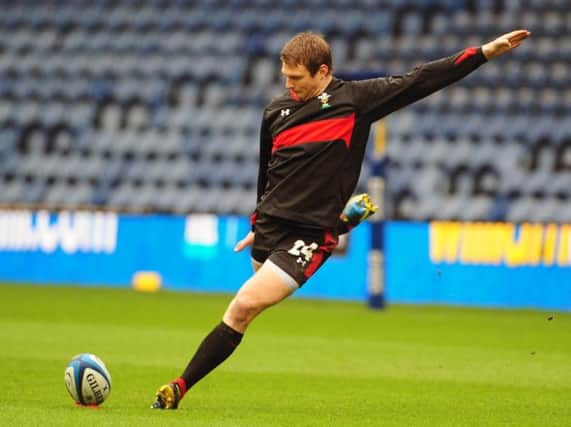Allan Massie: Irish Pro12 dominance could be over


Equally remarkably, Connacht have so far been the best of the Irish provinces. They have beaten Leinster and Edinburgh and gave Glasgow a hard game at Scotstoun last weekend. But so far the two best clubs seem to be Glasgow and the Ospreys.
It’s still early in the season but one wonders if this may be at least the temporary end of Ireland’s dominance of the league. There’s no doubt that both Glasgow and the Ospreys are improved and improving sides, while the evidence at present suggests that Munster, in particular among the Irish provinces, are not quite the force they were.
Advertisement
Hide AdAdvertisement
Hide AdThe Ospreys’ win at Thomond Park was marked by the outstanding performances of their half-backs, Rhys Webb and Dan Biggar. I’ve always had a high regard for Biggar, but he took some time to get a confidence vote from Warren Gatland, who tended to prefer Rhys Priestland. Then, when Biggar did win selection for the national team, he was the only member of the Welsh back division to be left out of Gatland’s Lions side. Now he is playing with control and confidence, aided by the rapid development of his club half-back partner. Webb is sparky, Biggar cool; a nice balance. They will surely be paired together in the autumn internationals. One would like to think that Scotland had a similarly assured half-back partnership.
Another Welsh scrum-half, the Scarlets’ young Aled Davies, also had an outstanding game against Edinburgh last Friday, running the show and passing beautifully off either hand. Just before he was substituted around the hour-mark he sent out his first bad pass of the evening, one that dropped just short of the recipient. But before then he had been very impressive, and it was his quick thinking and well-chosen line from a tap penalty that set up his side’s second try for Liam Williams.
Edinburgh did enough to deserve a draw after a terrible start, and, equally importantly, perhaps did enough to persuade their supporters to continue coming to Murrayfield. But though they played with much more spirit than against the Ospreys the previous week – indeed they could scarcely have played with less – they still looked a side sadly lacking in both confidence and ambition. Improved results would doubtless help them to regain confidence, but the lack of ambition – and imagination – is a weakness not so easily remedied.
It’s notable that Connacht, hitherto regarded as a tough and stuffy but very limited team, are themselves playing more enterprising rugby than ever before. No doubt that as this glorious autumn moves into winter, fewer sides will be able to play the fast, off-loading game, and, if it comes to an arm-wrestle, Edinburgh may not be found wanting. Nevertheless, at the moment they don’t look like a team capable of finishing in the top half of the league. This is something that they must do if they are to play in the upper tier of the new European competition next season – assuming, that is, that Glasgow maintain their present excellent form and qualify as the top Scottish team. We can have both Scottish clubs in the main cup only if both finish in the top six of the Guinness league.
It may, however, be no bad thing that Edinburgh are in the subsidiary competition this year. This gives them the opportunity to win matches and boost their confidence, whereas on their present form and at their present state of development, they would have found it hard to win a single game if they had been in the main cup. Being in the lower tier looks like a cloud with a silver lining.
Two of the finest Scotland players of the early years of the century, Lions Simon Taylor and Jason White, turned out for Watsonians against Selkirk last week. “A long way from Clermont-Auvergne’s Stade Marcel-Michelin”, I thought when I saw Jason on the replacements’ bench. They have been lured out of retirement by their former Scotland colleague, Watsonians coach Marcus Di Rollo, and, though their powers are dimmed, their presence must be educational for their young Watsonians team-mates. It was a pleasure seeing them again, but more of a pleasure, of course, to see Selkirk winning with a display of adventurous rugby. No doubt our very young and lightweight back division will find it harder when the grounds become heavy and the going gets tougher. But just at the moment they are a joy to watch. “The thing is”, as John Rutherford remarked, “they are all good Sevens players” – and all had their early rugby education from Graham Marshall at Selkirk High School, Graham himself being one of those players who almost always did the right thing, and who was very unlucky not to have won more than a handful of Scotland caps.